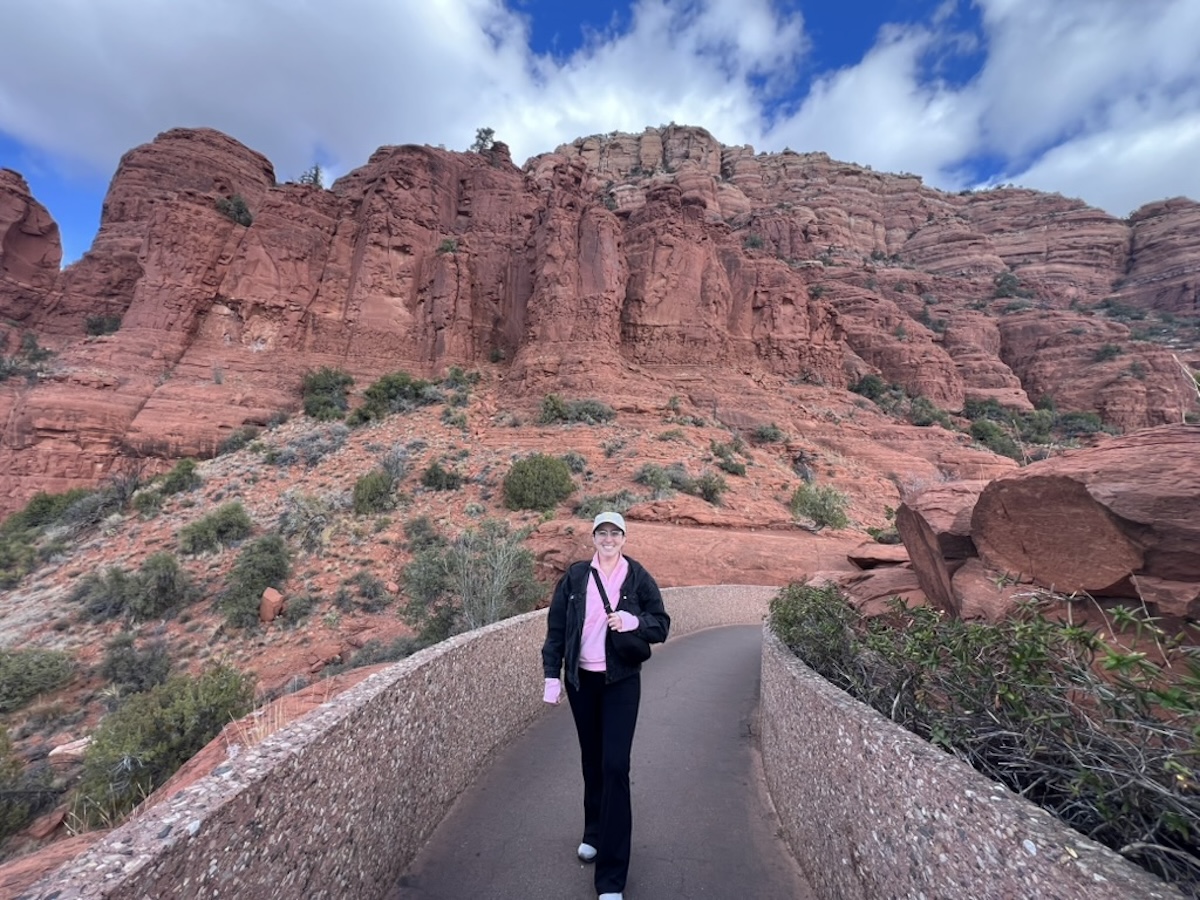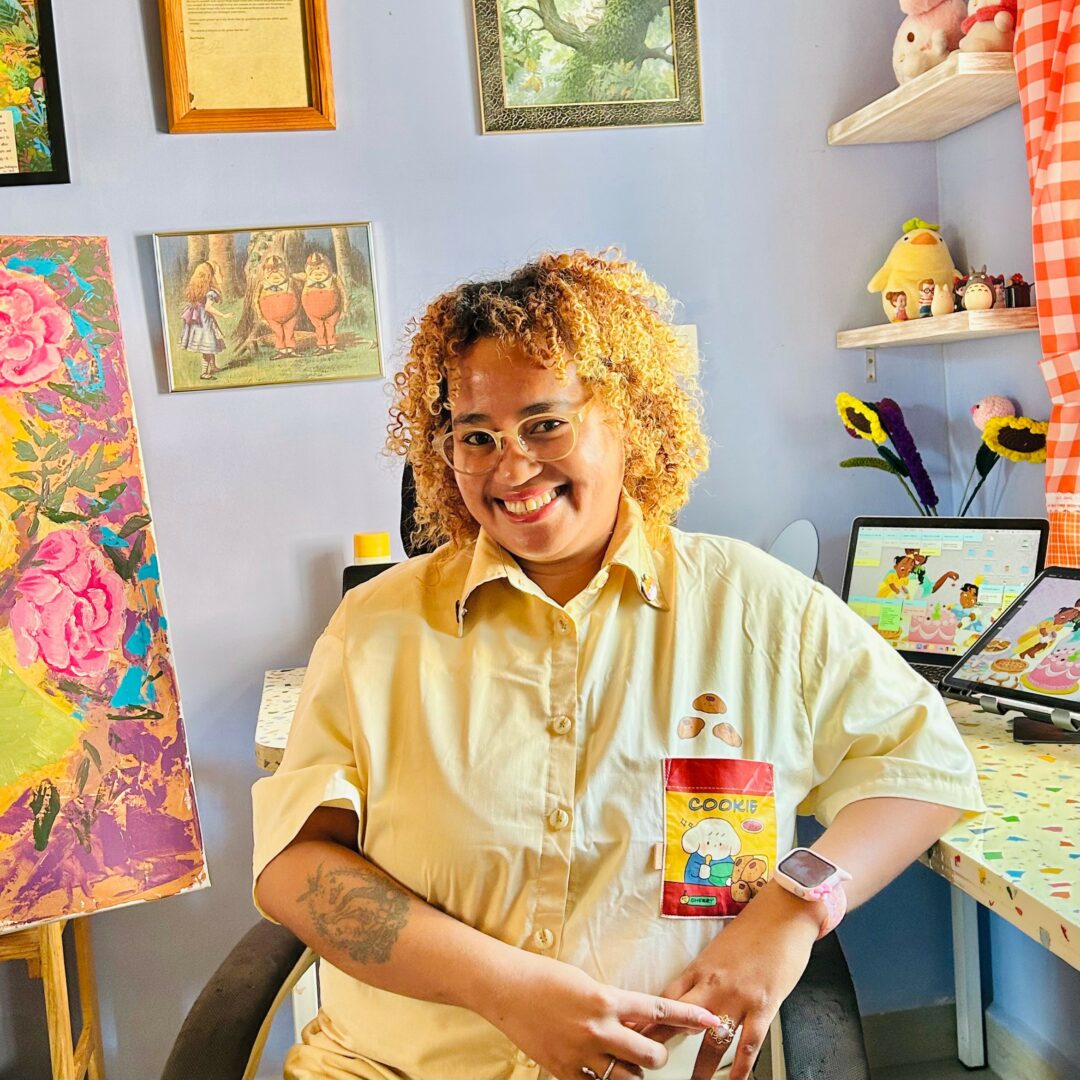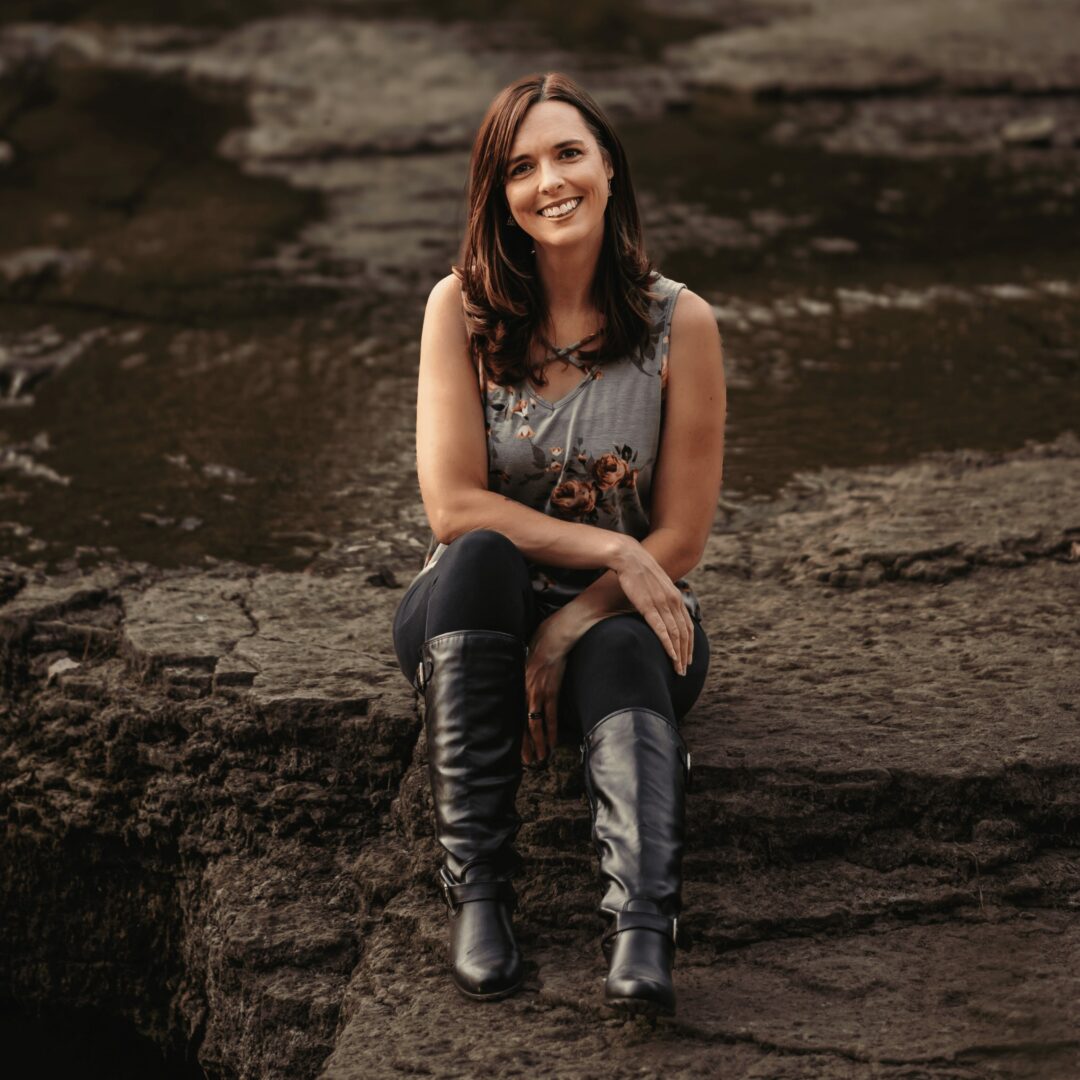We were lucky to catch up with Antonieta Contreras recently and have shared our conversation below.
Antonieta, thanks so much for taking the time to share your insights and lessons with us today. We’re particularly interested in hearing about how you became such a resilient person. Where do you get your resilience from?
As a trauma therapist, I’ve witnessed how challenging environments can lead children to mentally escape into activities that provide comfort and protection. Some might retreat into their imagination, while others find safety in creative pursuits. I found that refuge in the consistent practice of devotion. Though I didn’t fully grasp the theology at the time, the spiritual rituals and teachings helped me be with myself in a comforting way. I especially cherished the act of bringing flowers to the Virgin Mary, a mother figure who offered love and the opportunity to practice gratitude. I learned to use the same type of focus on everything else, including school. The way I cared for my books, the dedication to completing each homework assignment, and the attention and respect I learned to put on classes and teachers gave me a similar sensation of well-being and protection.
Looking back, I realize these experiences contributed to my inner strength and the development of resilience. For example, communion motivated me to care about my actions, thoughts, and words to maintain Jesus in my heart for as long as possible, which helped my brain and nervous system stay focused on the positive. Cultivating a profound sense of trust, calmness, confidence, and joy within myself by setting my mind to respect and appreciate what I had also helped me feel hopeful and safe.
Now that I’m passionate about neurobiology, I recognize that devotion, hope, trust, and dedication to my activities likely triggered the release of neurotransmitters associated with positive emotions and optimal brain function, creating an internal peace that allows space to resolve whatever difficulties arise.
At the heart of what I’m trying to explain here is the healing power of faith and the benefits of focusing on the positive. Dedication and devotion to what you do translate to various aspects of life, from finding joy in the processes involved in caring for family and work, to actively pursuing deep values even in simple tasks. It becomes a natural way of living, a far cry from an existence consumed by fear and negativity. This convinced me that we have the power to choose, and choosing to engage with commitment and enthusiasm allows us to live a more fulfilling life, one filled with purpose and joy, helped by the positive response of our biology. The brain works best when we set clear goals and dedicate our full attention to the task at hand, especially if we do it with a positive mindset.
So, this type of mindset became the foundation for my approach to life, both personally and professionally. While many people chase after the advice to ‘do what you love,’ I’ve come to believe in the power of ‘loving what you do.’ It’s the journey, not just the destination, that brings true meaning.
Great, so let’s take a few minutes and cover your story. What should folks know about you and what you do?
I was born in Mexico City to a very conservative family. My father believed women were better off at home, learning piano and embroidery, protected from the world’s dangers. But I built my way into college and thrived, excelling in math and Actuarial Sciences. My skills caught the Dean’s eye, and he offered me a position at his company even before graduation. By sharing this aspect of my story, I want to encourage many other women to break free from limitations and chase their dreams, no matter the obstacles.
Success continued in my investment banking career, until life took an exciting turn when we relocated with my international banker husband and 2 kids. I moved 6 times in a few years. But living in different cultures even when challenging, it was also very rewarding. Living in different countries and observing different cultures and values opened up a new different way to appreciate humanity. It solidified the idea that despite cultural differences, deep down we all crave connection, purpose, and a sense of belonging. This realization, along with observing traditional practices that focused on inner peace, piqued my interest in Buddhist philosophy. Through immersion in this philosophy, I learned one of the most significant lessons that drew me to where I am now: that spiritual growth often requires addressing underlying emotional issues. Buddhism sparked a deep fascination with the science of mental health and the brain because I realized that many meditative practices leverage heavily on our brain’s characteristics. The human mind’s incredible potential to heal and adapt captivated me.
This passion for mental health and the desire to empower others led me to dedicate myself to this field. I worked in agencies, hospitals, clinics and institutes with highly traumatized individuals until I landed in private practice. I also made time to teach, supervise clinicians, do research, and continue training in many therapeutic modalities. After years of ongoing learning, teaching, helping a trauma studies program grow, and helping people heal, I culminated my understanding by writing the book, “Traumatization and Its Aftermath,” released last August by Routledge. I wrote this comprehensive guide to help individuals explore the complex nature of human experience and the impact of trauma on all aspects of life. The book proposes a systemic approach to understanding trauma, healing, and building resilience.
“Traumatization and Its Aftermath” has been a bestseller since its release, winning the Best Book Awards in the Mental Health/Psychology division. It was also a finalist in the Self-Help category, highlighting its appeal to a wide audience, from clinicians to individuals interested in exploring their own mental health in relation to trauma.
There is so much advice out there about all the different skills and qualities folks need to develop in order to succeed in today’s highly competitive environment and often it can feel overwhelming. So, if we had to break it down to just the three that matter most, which three skills or qualities would you focus on?
Throughout my career, I’ve continuously strived to learn and grow both personally and professionally. Looking back, I believe three key qualities have been most impactful in shaping my journey:
Brain Integration:
What I mentioned earlier about devotion and focus can also be expressed through the lens of neuroscience as the ability to integrate various brain regions, particularly promoting strong coordination between the left and right hemispheres. We often value intelligence and cognition more highly than creativity and curiosity, but both are essential for a richer life experience.
Utilizing our analytical capabilities (left hemisphere) is extremely useful, as is developing emotional intelligence, empathy, and a connection with our bodies (right hemisphere). The integration between logic (my career) and emotion (devotion and cultural awareness) significantly enriched my life and was fundamental to my shift toward the field of mental health.
Let me use an analogy to illustrate this concept: understanding the context of a song, the singer’s profile, the lyrics, and the musical notes is valuable, but it won’t create a truly fulfilling experience until we immerse ourselves in listening to the song, and even better, singing along. Similarly, engaging with the world only through thoughts and reasoning is not as enriching as adding the experience of feeling life in its entirety.
To supercharge our brains, I recommend cross-training! Learning a new language with a grammar system different from your own is a great way to do it. It gets your brain firing on all cylinders, building new connections and boosting memory. Plus, activities like music or dance are great for integration. They get your body moving and your brain humming, using different areas for rhythm, coordination, and hearing. And something that might sound silly but helps enormously is crawling! This simple exercise can activate parts of your brain involved in planning movement and put your senses and both sides of your whole body to work together.
Viewing the world through a systemic lens:
In my twenties, I developed an infection in a neck gland. After a frustrating year of visiting doctors, I finally met one who took a different approach. He told me, ‘I treat patients, not illnesses.’ He explained that everyone responds differently to bacteria because each individual’s body has unique characteristics that can lead to a variety of responses and symptom combinations.
Understanding systemic medicine and its contrast with allopathic medicine was a pivotal moment for me in my work helping people recover their mental health. I saw how a systemic approach values the whole person, not just isolated symptoms. It emphasizes the interconnectedness within the body and how lack of coordination between different systems can contribute to illness. With my clients, I look beyond isolated symptoms, behaviors, or patterns, and focus on understanding their unique characteristics and the interplay of factors that have contributed to the development of emotional issues or dysfunction.
My book utilizes this systemic approach to equip both individuals and clinicians in finding a more complete recovery from trauma. While this approach is complex and a deeper exploration is beyond the scope of this conversation, if you’re interested in learning more about it, I recommend visiting my website at TraumatizationAndItsAftermath.com.
You could also visit my YouTube channel where I am adding content to explain the main principles of trauma (https://www.youtube.com/playlist?list=PLdHyTeOLBw2EeV1aLLDukXBWTy1t9puY2) and I expand on the concepts in my Podcast of the same name: Ask Me About Trauma (https://open.spotify.com/show/7J7obp0oIP7F0e9C4exfEy?si=5aac09997460423e)
Balance and equilibrium:
Finally, I want to include another critical concept in my life and work: importance of equilibrium. The universe constantly strives for a state of balance, as illustrated by our solar system’s delicate planetary orbits around the sun. Disrupting this equilibrium could lead to chaos and destruction. The same principle applies to living organisms, including our brains.
Our brains are complex networks of neurons, constantly communicating through a balance of excitatory tasks and neurotransmitters, which promote activity, and inhibitory actions and neurotransmitters, which calm activity. This equilibrium is essential for optimal functioning. When this balance is disrupted, it can result in various mental health challenges. In fact, PTSD and other trauma-related disorders develop when the nervous system loses its equilibrium, a state we refer to as “dysregulation.” Symptoms such as anxiety, depression, or difficulty managing emotions can become commonplace as a result of this dysregulation.
Mindfulness meditation, yoga, or even spending time in nature promote internal balance and can enhance self-awareness, which helps identify when equilibrium feels disrupted. But once dysregulation is a constant in someone’s life, professional help would be needed.
What would you advise – going all in on your strengths or investing on areas where you aren’t as strong to be more well-rounded?
That’s a fantastic question, and in my experience, the best approach lies somewhere between solely focusing on strengths and becoming a complete jack-of-all-trades.
I firmly believe in the importance of inner growth and the development of emotional capital. Just as financial capital helps us navigate the world, emotional capital equips us to manage stress, build healthy relationships, and navigate life’s challenges. That’s why my advice is to invest in therapy! I’m not joking. Therapy should not solely be about fixing problems when they reach a breaking point. Instead, it should become more like preventive maintenance for our emotional well-being—a routine way to work on our emotional stability and inner growth.
Think of our emotional system like a car. We don’t wait until the engine is sputtering or out of gas to take it for service, right? Regular maintenance ensures smooth operation and prevents breakdowns. Similarly, investing in therapy and personal growth practices allows us to identify areas where we can strengthen our emotional toolkit. Of course, I’m not suggesting neglecting our strengths. Leveraging our natural talents and skills is crucial for success and job satisfaction. However, neglecting areas for improvement can hinder growth and limit our potential.
The key is to find a balance. For example, I have worked with many clients who excel at cognitive tasks but struggle with expressing, identifying, or controlling their emotions. Focusing solely on their strengths would have missed addressing these emotional blind spots. By acknowledging their strengths while also developing skills for emotional expression and regulation, they became able to build stronger relationships and experience greater personal fulfillment.
Furthermore, the world of mental health is constantly evolving, and so should our understanding of ourselves. As a trauma therapist, educator, and author, I am dedicated to empowering individuals to embark on their own journeys of self-discovery and resilience, equipped with the tools and insights needed to navigate life’s challenges with grace and authenticity. My advice is for everyone to cultivate compassion, inner peace, and an internal compass to measure success in terms of well-being.
Contact Info:
- Website: antonietacontreras.com
- Instagram: https://www.instagram.com/antonietacontrerastherapist/
- Facebook: https://www.facebook.com/antonieta.contreras.9
- Linkedin: https://www.linkedin.com/in/antonieta-contreras/
- Twitter: https://twitter.com/AntonietaCont10
- Youtube: https://www.youtube.com/channel/UCvxyXp7k_ijyWJ8fT-Epw4Q
- Other: https://medium.com/@contrerasantonieta
https://www.pinterest.com/contrerasantonieta/book-traumatization-and-its-aftermath/
https://www.quora.com/profile/Antonieta-Contreras-1/answers






